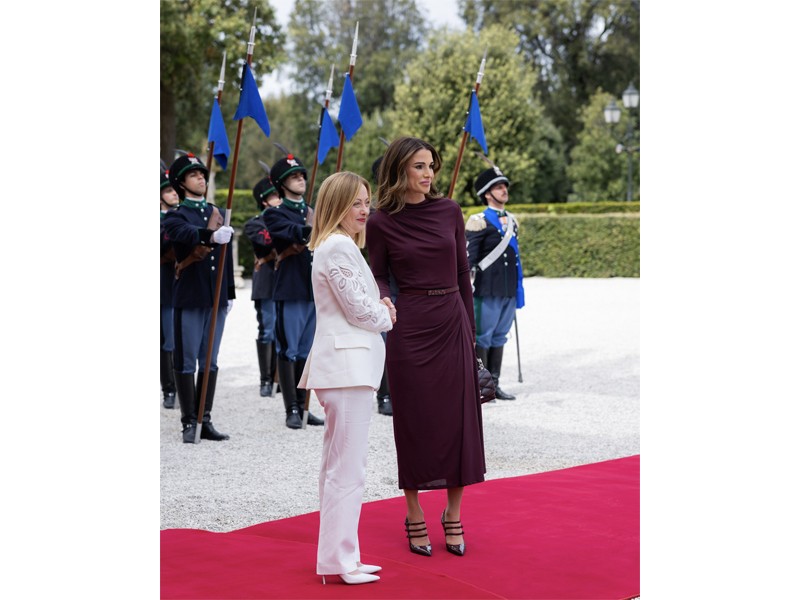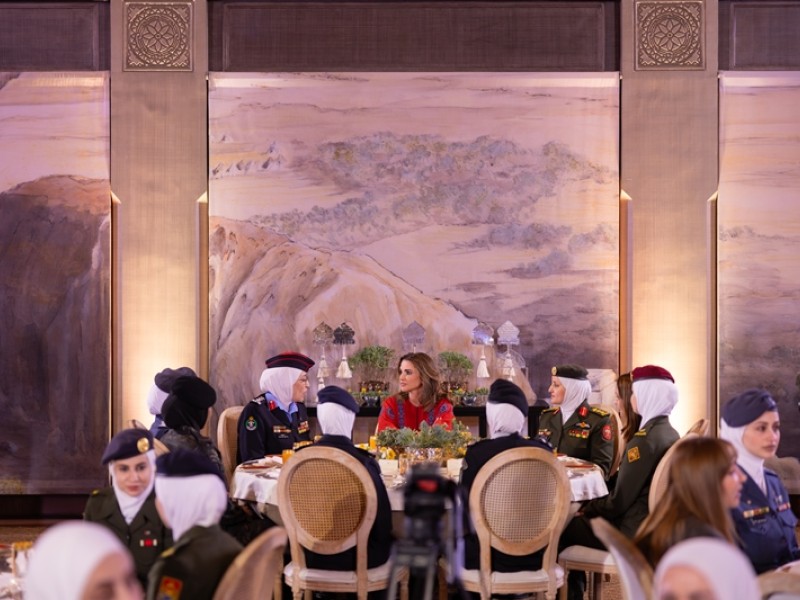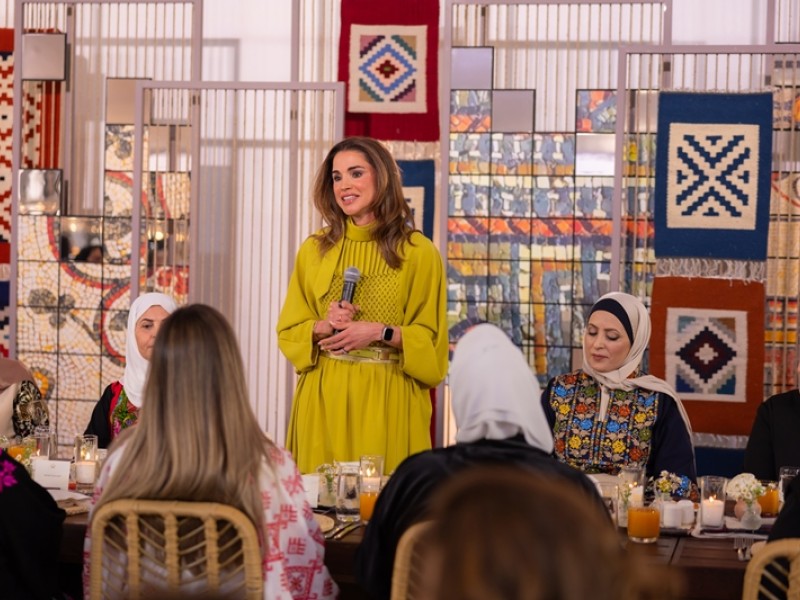Queen Rania Marks World Breastfeeding Week
(Office of Her Majesty, Press Department - Amman) The Middle East and North Africa region has witnessed a steady increase in the rate of exclusive breastfeeding since 1990 and parallel success in infant mortality reduction in the last 10 years. Yet, despite the advances, the latest available figures reveal that only a modest 38 percent of infants in the region are exclusively breastfed from birth until their sixth month of age a figure barely above the global average of 36 percent but equal to the present performance in East Asia and the Pacific. On the occasion of World Breastfeeding Week 2007, which takes place during the first week of August, UNICEF and UNICEF’s Eminent Advocate for Children Her Majesty Queen Rania Al Abdullah call upon all concerned – mothers and fathers, the general public, community leaders and policy makers to scale up efforts to sustain achievements, especially concerning the timing and duration of breastfeeding. Low rates of exclusive breastfeeding constitute a decisive factor of child malnutrition in the region, which permeates conflict-ridden nations and oil-rich countries in the GCC alike. Some of the highest indicators in exclusive breastfeeding come from middle income countries enjoying relative socio-economic and political stability, such as Tunisia (47 percent) and Iran (44 percent). Similarly, as the subsistence of inadequate feeding practices amongst newborns becomes increasingly perceptible, countries in the region will need to seek resolute action to uphold the promotion of early exclusive breastfeeding as a key formula to avoid unwelcome setbacks in infant and neonatal mortality. In addition, scientific research provides evidence that exclusive breastfeeding from the first hour of birth to the age of 6 months can considerably increase the chances of a newborn’s survival as the mother’s milk will supply babies with immune and nutritional factors that no breast milk substitute can possibly replace. Evidence also shows that early initiation can prevent 22 percent of all deaths among babies below one month. In a statement issued by Queen Rania on this occasion the Queen highlighted the importance of this early and exclusive practice: “There is nothing more natural, nothing more instinctive, and nothing more effective than breastfeeding. Protecting her baby is a mother's first instinct and a mother's milk is the most powerful vaccine there is against infectious and non-infectious disease. That is why I am proud of UNICEF's efforts to raise awareness about the benefits of breastfeeding. The fact is: breastfeeding can save lives. Exclusive breastfeeding for up to six months can reduce child mortality by 13 percent. Early initiation within the first hour of birth can prevent 22 percent of all neonatal deaths. These are not statistics any mother wants to gamble with.” Shaping an enhanced policy framework on exclusive breastfeeding As the world marks World Breastfeeding Week 2007, countries in the Middle East and North Africa are in the process of implementing Infant and Young Child Feeding strategies, with exclusive breastfeeding at the core of institutional and community-based interventions. An Arab inter-country UNICEF-WHO sponsored workshop held in Damascus last May issued recommendations with aims to curb declining rates of exclusive breastfeeding throughout the region, which include the expansion of awareness and educational interventions reaching communities, capacity building of health workers and enhanced monitoring of trends in countries like Sudan, Yemen, Djibouti and Egypt. In the policy design and legislative fronts, governments in the region need yet to reach widespread consensus to develop supporting environments allowing for working mothers to practice exclusive breastfeeding. Equally relevant is the discussion concerning the increased migration of mothers to urban settings where the use of complimentary foods and breast milk substitutes is marketed extensively. Good practices promoting exclusive breastfeeding in the Middle East and North Africa region include the work of community development associations in Upper Egypt via door to door awareness visits where essential messages are delivered on routine immunization, maternal health, child nutrition and exclusive breastfeeding. UNICEF Tunisia and the Ministry of Childhood are raising men’s awareness of gender issues, early childhood development and the benefits of exclusive breastfeeding.
Featured
Queen Rania's official website
This website does not support old browsers. To view this website, Please upgrade your browser to IE 9 or greater
Your browser is out of date. It has known security flaws and may not display all features of this and other websites. Learn how to update your browser



